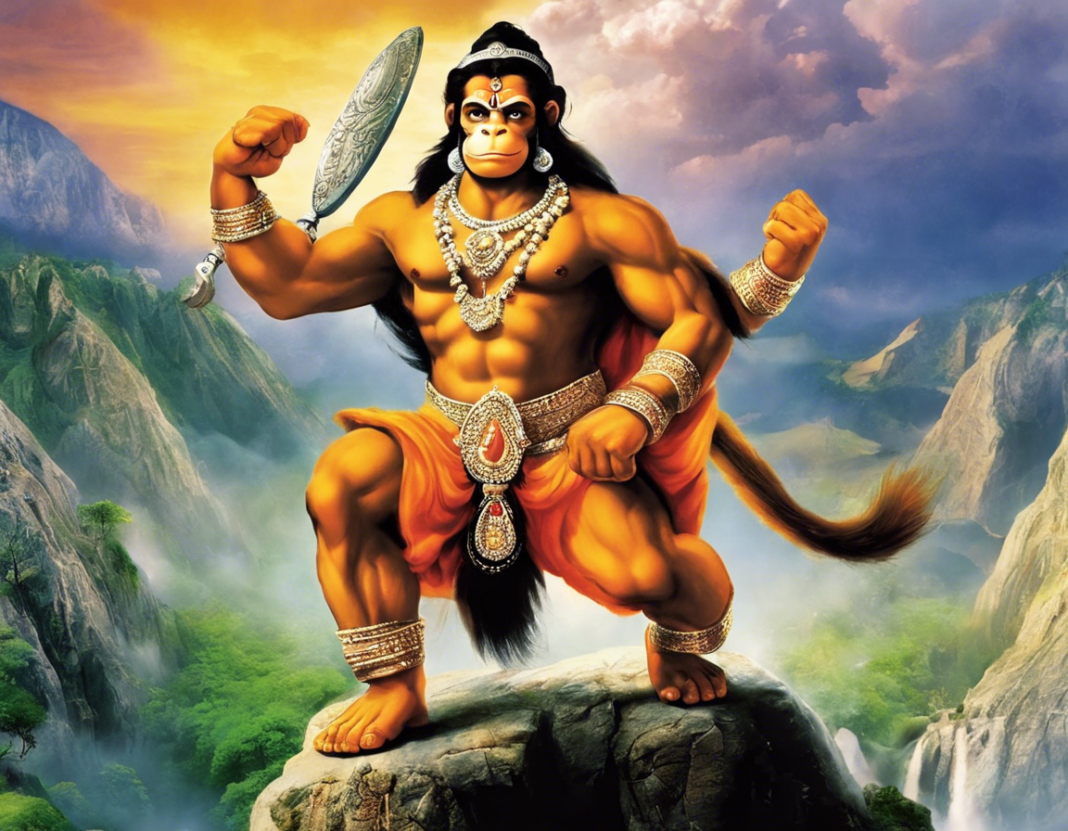Hanuman, the mighty Hindu deity known for his devotion, courage, and unwavering loyalty, is a significant figure in Indian mythology. As a central character in the ancient Indian epic, the Ramayana, Hanuman’s tales are rich with adventure, wisdom, and spiritual significance. This article delves into the depths of The Legend of Hanuman, exploring his origins, powers, exploits, and enduring teachings that continue to inspire millions around the world.
The Origins of Hanuman
Hanuman, also known as Maruti or Pawanputra, is believed to be the son of the wind god, Vayu, and Anjana, a celestial nymph. His birth is a fascinating tale in itself, with Vayu playing a crucial role in bringing him to life. Blessed with incredible strength, agility, and intelligence, Hanuman quickly became a revered figure among the gods.
The Adventures of Hanuman
One of the most famous episodes in Hanuman’s life is his role in the Ramayana, where he plays a pivotal part in the rescue of Lord Rama’s wife, Sita, from the demon king Ravana. Hanuman’s leap across the ocean to reach the island of Lanka, his encounters with various obstacles, and his eventual triumph in locating Sita are legendary. His unwavering devotion to Lord Rama, his fearless battles with the demon army, and his humility in all his actions exemplify the qualities of a true devotee and warrior.
The Powers of Hanuman
Hanuman is known for his extraordinary powers, which include the ability to change his size at will, fly across great distances, and wield a formidable mace in battle. His devotion to Lord Rama grants him immense strength and courage, making him a formidable ally and a fearsome adversary to those who oppose righteousness and dharma. Hanuman’s powers are not merely physical but also spiritual, as he embodies the virtues of selflessness, humility, and service to others.
The Teachings of Hanuman
Beyond his valor and prowess, Hanuman is revered for his wisdom and teachings. His dedication to Lord Rama symbolizes the ideal devotion of a disciple to his master. Hanuman’s famous line, “When I forget myself, I serve you, and when I remember myself, I am you,” encapsulates the essence of true surrender and oneness with the divine. His lessons on loyalty, perseverance, and humility continue to inspire spiritual seekers and devotees seeking guidance on their path.
The Symbolism of Hanuman
Hanuman is more than just a mythical character; he is a symbol of hope, courage, and faith. His image adorns temples, homes, and vehicles, with devotees seeking his blessings for protection and strength. Hanuman’s flag, bearing the symbol of the sun, represents righteousness and dispels darkness. His association with the color saffron signifies purity and renunciation, while his monkey form signifies humility and adaptability.
The Legacy of Hanuman
The legend of Hanuman has transcended time and boundaries, inspiring generations of believers across the world. His stories are not just myths but profound allegories that teach timeless truths about duty, honor, and spiritual awakening. Hanuman’s presence in the lives of millions continues to remind us of the power of faith, the importance of service, and the ultimate triumph of good over evil.
Hanuman Chalisa: A Sacred Hymn
The Hanuman Chalisa, a sacred hymn composed by the poet-saint Tulsidas, is a popular devotional song sung in praise of Hanuman. It extols his virtues, narrates his exploits, and invokes his blessings for protection and guidance. The Hanuman Chalisa is recited by millions of devotees worldwide, seeking Hanuman’s grace and benevolence in their lives.
Frequently Asked Questions (FAQs) about Hanuman
1. Who is Hanuman?
Hanuman is a Hindu deity known for his devotion to Lord Rama and his incredible powers.
2. What is the significance of Hanuman in Hindu mythology?
Hanuman is revered as a symbol of strength, devotion, and loyalty in Hindu mythology.
3. What are some famous stories about Hanuman?
Some famous stories about Hanuman include his role in the Ramayana, his leap across the ocean, and his burning of Lanka.
4. Why is Hanuman worshipped?
Hanuman is worshipped for his protective powers, strength, and ability to remove obstacles from the path of devotees.
5. What are the qualities that Hanuman embodies?
Hanuman embodies qualities such as devotion, courage, humility, and selflessness in his actions and teachings.
6. How can one seek the blessings of Hanuman?
Devotees seek the blessings of Hanuman by reciting the Hanuman Chalisa, visiting Hanuman temples, and offering prayers and offerings with a pure heart.
7. What is the spiritual significance of Hanuman’s character?
Hanuman’s character symbolizes the eternal servant of the divine, the ideal devotee, and the embodiment of selfless service and devotion.
8. How does Hanuman inspire people around the world?
Hanuman’s tales of valor, loyalty, and wisdom inspire people to overcome obstacles, face challenges with courage, and deepen their spiritual practice.
9. What lessons can be learned from Hanuman’s life?
From Hanuman’s life, one can learn the importance of devotion, service, humility, and the unwavering commitment to truth and righteousness.
10. How can one connect with Hanuman on a personal level?
One can connect with Hanuman on a personal level through prayer, meditation, chanting his mantras, and striving to embody his virtues in daily life.
In conclusion, the legend of Hanuman encompasses a vast treasure trove of wisdom, adventure, and spiritual insights that continue to resonate with people of all ages and backgrounds. Hanuman’s enduring legacy serves as a beacon of light, guiding seekers on the path of righteousness, devotion, and selfless service. By exploring the depths of Hanuman’s mythic journey, we invite ourselves to reflect on our own quests for meaning, purpose, and transcendence in the boundless expanse of existence.
